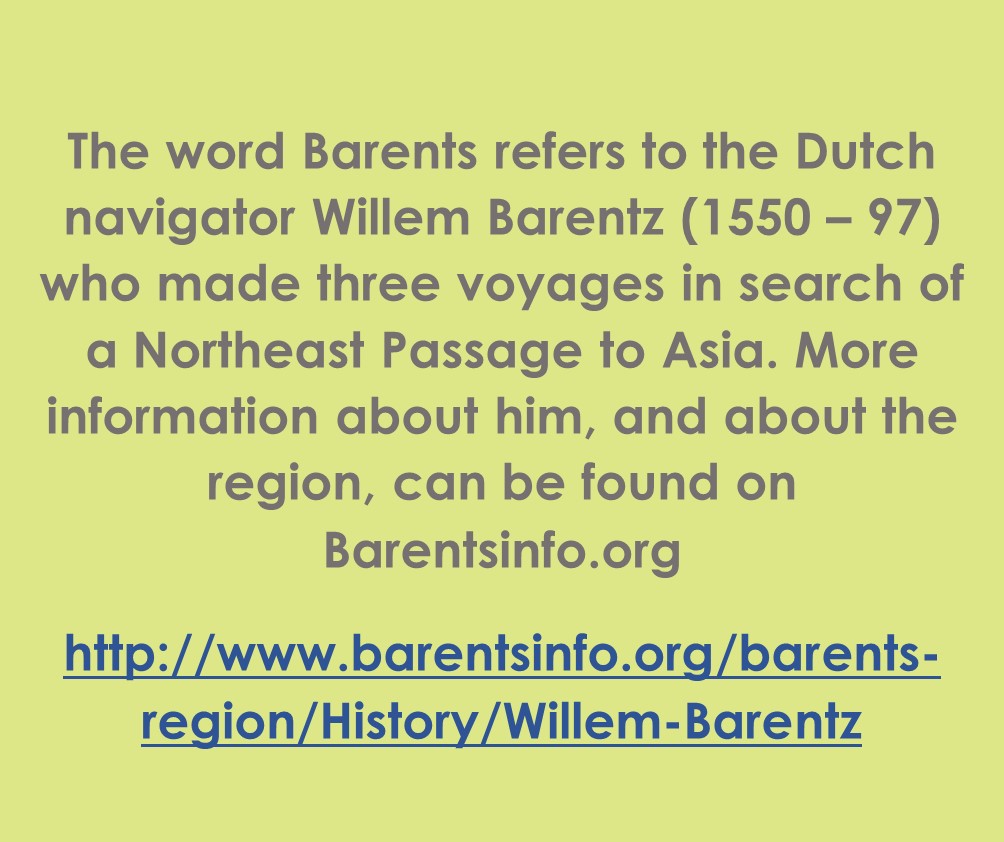The Kolarctic CBC 2014-2020 programme document, as well as many projects funded by the programme, refer in many ways to Barents Region or Barents Cooperation. What is meant by Barents?
Cooperation in the Barents Euro-Arctic Region was launched in 1993, when Denmark, Finland, Iceland, Norway, Russia, Sweden, and the European Commission signed the Kirkenes Declaration establishing the Barents Euro-Arctic Council (BEAC) at a Foreign Minister’s Conference in Kirkenes, Norway. At the same time, the county governors of Barents Region counties, and representatives of indigenous peoples, signed a cooperation protocol establishing the Barents Regional Council (BRC).
The documents mentioned above stated that the overriding goal of the Barents Euro-Arctic Council (BEAC) is to promote stability and sustainable development in the Barents Region, i.e. in the Northern parts of Finland, Norway, Russia, and Sweden. Other members of the Barents Euro-Arctic Council are Denmark, Iceland, and the EU.
In making the Kolarctic CBC programme, the programming Committee wanted to make sure that the aims and achievements of Barents Cooperation, and the experience of organisations participating in it, is taken into account in the Kolarctic CBC programme. The programme document of Kolarctic CBC states e.g. ”When the substance of the project activities concerns implementation of the activities defined for Barents cooperation or support of Euro-Arctic development, partners from outside of the Programme area can participate as equal partners.”
Links to more information:

